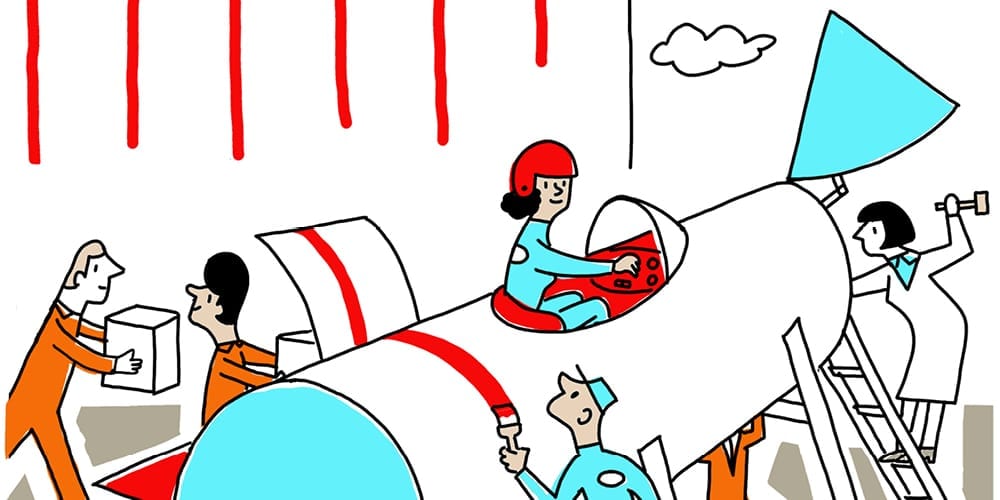“Unrealistic” timelines can actually work. Here’s how.
Businesses around the world are looking for ways to help in response to the COVID-19 pandemic, while continuing to sell products and services and keep people employed. From the C-suite to managers to employees at all levels, great ideas are popping up. But how can they be turned into reality as quickly as possible?
I have some experience on this front. When Hurricane Katrina struck the U.S. Gulf Coast in 2005, I was with the advertising and marketing agency Saatchi & Saatchi. My team and I were sitting in a bar with the brand team for Tide, one of our biggest clients. We got to talking about how we’d love to create something to help. Pens came out, and together we scribbled on the back of a napkin. Two weeks later, our idea came to fruition: Loads of Hope, trucks filled with working washing machines and dryers. People struggling in the aftermath could drop off their dirty clothes, and we would clean and fold them. These mobile laundromats continue to be deployed to afflicted areas today, and have helped tens of thousands of families.
Early during the COVID-19 pandemic, a contact in Asia and I got to talking about how kids would need washable masks for school. Within a few weeks, we had Crayola on board, and the SchoolMaskPack program was launched. Families can buy a set of five color-coded kid-sized masks, one for each day of the school week, which can be washed and reused. Demand has been so great that the manufacturer recently had to expand operations to multiple countries.
In both these cases, we were able to move very quickly because we had three crucial ingredients for fast-tracking new ideas.
Innovation as a mission
There’s a big difference between supporting innovation and making it an institutional imperative. Crossing this divide starts with a mindset that business leaders must instill in their organizations: Innovating is a mission, not just a nice idea. It’s something all employees should be working on, in some way, at all times. (As Barry Jaruzelski, Robert Chwalik, and Brad Goehle noted in these pages in their article on top innovators, “Apple’s innovation mind-set is thoroughly integrated in the mission as well as the organization of the company.” CEO Tim Cook describes the company as “a group of people who are trying to change the world for the better.”)
An emergency is a great time to walk the walk. Invite everyone to immediately contribute ideas and have their voices heard. This is what happened with Loads of Hope. The group of us at the table in that bar included people at all levels, from an assistant brand manager at Tide to its brand director, and from a junior account executive of our firm to me, the executive vice president. We were all tossing out ideas, regardless of our place in the institutional hierarchy.
As the concept started to take shape, we all helped refine it. We also knew this conversation wasn’t just theoretical, because the brand was serious about its mission.
Unrealistic timelines
“Unrealistic” timelines usually get a bad rap. But in the midst of an emergency, when it comes to stepping up the pace of innovation, they can be useful. Setting what seem to be impossible deadlines (and understanding the challenges in meeting them) can unleash positive energy and push people to think in new ways. For Loads of Hope, the Tide team needed to find a partner who could get trucks outfitted with washers and dryers. The process for selecting a partner, which could take months in any organization, had to happen virtually overnight. Fortunately, the brand’s leadership team was committed and set aside all the usual steps so the project could happen.
With SchoolMaskPack, my partner and I built in a 24-hour work schedule from the outset. Since we had personnel in various time zones, tasks could be handed off in a “follow the sun” business model. (After all, at 6:00 pm in Sydney, it is 9:00 am in London.) Crayola had people available at any hour to instantly approve or weigh in on decisions, with no need for delays or red tape.
Compressed time frames can…
Read The Full Article at Strategy+Business



